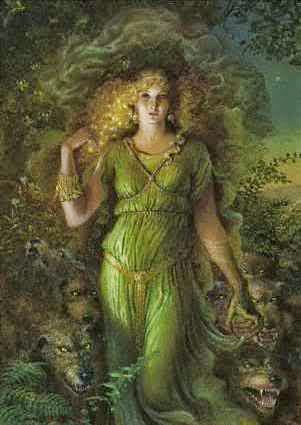Ogmios, the Celtic God of Speech
Another god, Ogmíos, a native god of speech, who draws men by chains fastened to the tip of his tongue, is identified in Lucian with Heracles, and is identical with the Goidelic Ogma. Eloquence and speech are important matters among primitive peoples, and this god has more likeness to Mercury as a culture-god than to Heracles, Greek writers speaking of eloquence as binding men with the chains of Hermes.
Another god, Ogmíos, a native god of speech, who draws men by chains fastened to the tip of his tongue, is identified in Lucian with Heracles, and is identical with the Goidelic Ogma. Eloquence and speech are important matters among primitive peoples, and this god has more likeness to Mercury as a culture-god than to Heracles, Greek writers speaking of eloquence as binding men with the chains of Hermes.
Several local gods, of agriculture, commerce, and culture, were thus identified with Mercury, and the Celtic Mercury was sometimes worshipped on hilltops, one of the epithets of the god, Dumias, being connected with the Celtic word for hill or mound. Irish gods were also associated with mounds.



